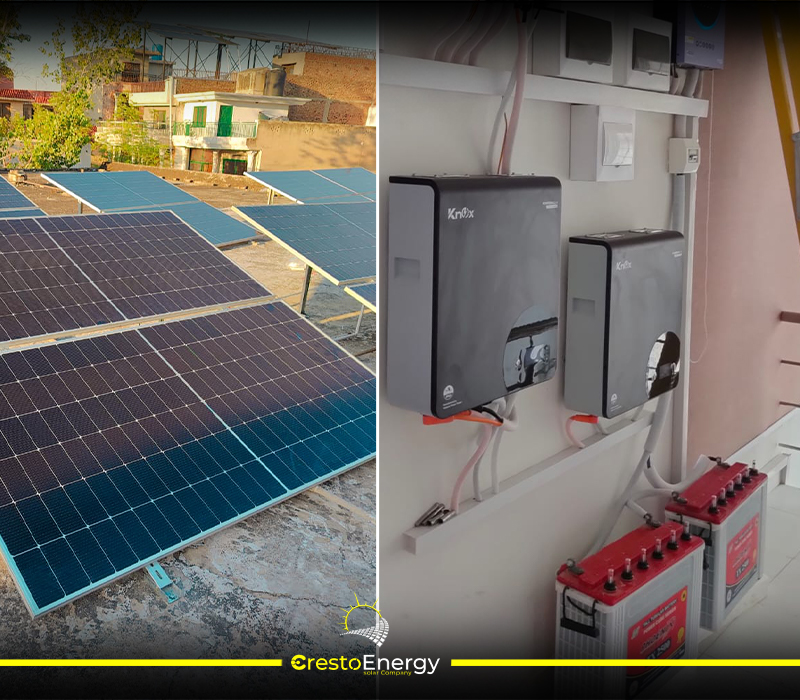
If you’re considering solar energy for your home in Pakistan, one of the first questions you’ll face is: Which type of solar system should I install — on-grid, off-grid, or hybrid? Each option has its own benefits, costs, and ideal use cases. In this blog, we’ll break down the differences in simple, practical terms so you can confidently decide which system is right for your household.
An on-grid solar system is directly connected to your local utility provider (such as WAPDA, KE, or other DISCOs).
💡 On-grid is most popular in cities like Lahore, Islamabad, and Karachi where grid access is reliable but electricity bills are high.
An off-grid solar system is completely independent from the utility grid. It comes with a battery bank to store excess energy.
💡 Ideal for villages and areas in Balochistan, Sindh interior, or northern regions where grid electricity is unavailable or unstable.
A hybrid solar system combines the best of both worlds: it connects to the grid but also has a battery backup.
💡 Popular in cities like Lahore and Islamabad where load-shedding is common but net metering is also available.
| System Type | Average Cost (PKR) | Ideal For | Net Metering Eligible |
| On-Grid System | PKR 750,000 – 1,000,000 (5kW) | Homes with stable grid supply | ✅ Yes |
| Off-Grid System | PKR 1,000,000 – 1,300,000 (5kW) | Rural/remote households | ❌ No |
| Hybrid System | PKR 1,200,000 – 1,600,000 (5kW) | Homes with frequent outages | ✅ Yes |
Note: Prices vary depending on equipment brand, inverter type, and installation quality.
👉 For most urban Pakistani homes in 2025, hybrid solar systems are becoming the most practical and popular choice. They balance cost savings, reliability, and peace of mind.
Whether you go with an on-grid, off-grid, or hybrid solar system, the key is to choose a trusted installer who understands local conditions, WAPDA approvals, and net metering regulations. At Cresto Energy, we’ve helped hundreds of homeowners across Pakistan make the switch to solar confidently.
💡 Ready to find the perfect solar system for your home?
👉 Contact us today for a free consultation and start your journey to reliable, affordable solar energy.

Switch to solar with Cresto Energy — reliable systems, expert installation, guaranteed savings.
Contact us